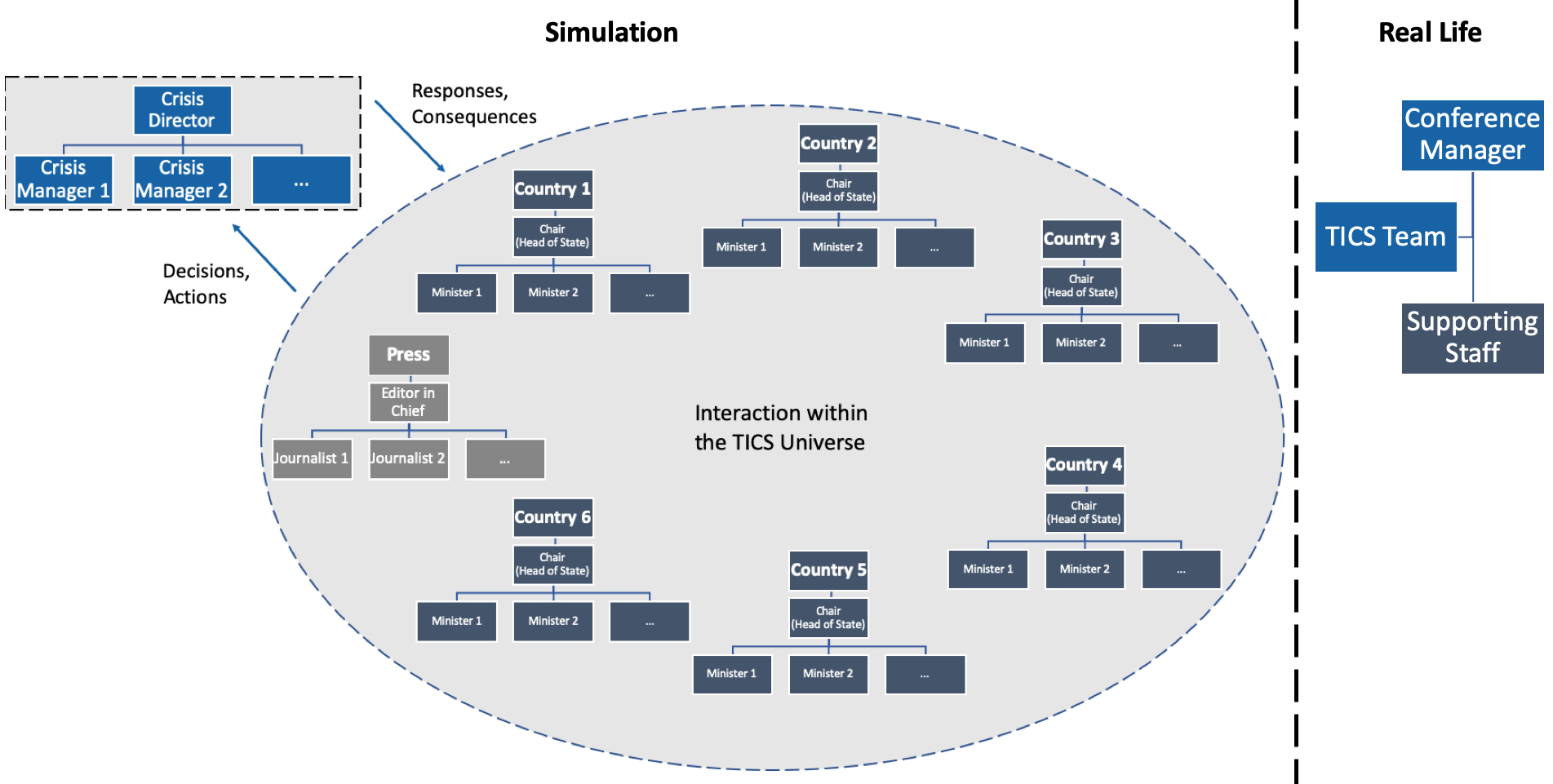You don’t know what the TICS Universe is comprised of and how the crisis simulation will work? Below you find a graphical overview of all positions in the TICS Conference.

The crisis simulation is a political simulation game in which participants are confronted with an event leading to a crisis to which they have to react. The crisis simulation is based on a Model United Nations Conference, with the difference that instead of simulating different bodies of the United Nations, different country cabinets are simulated.
The participants slip into the roles of Delegates – namely ministers or presidents. They represent their position within their government vis-à-vis the other simulated states as realistically as possible. Each cabinet is led by a Chair who represents the head of state.
Additionally, it is possible to slip into the role of a journalist and work for a newspaper within the crisis simulation which will publish news reports or conduct interviews related to the crisis’ events. The journalists are led by the Editor in Chief.
During the conference, the different cabinets are confronted with a crisis that they should resolve. You as a participant can take measures and decisions as well as interact with the other simulated cabinets. You can, for example, request information, publish press releases, issue diplomatic messages to other countries or arrange joint minister or head of state meetings. Your inquiries and commands will then be answered by the Crisis Team. The world outside of the TICS Universe (e.g., other countries or the institutions and authorities of your respective country) is simulated by Crisis Managers who are led by the Crisis Director. They determine the remaining reality, influence the course of events, respond to your actions and decisions and thus ensure that the crisis proceeds as realistically as possible. They are also responsible for planning and developing the crisis scenario.
